Update April 2014:
This interview originally ran as part of our coverage of the 2013 Hamptons International Film Festival. Decoding Annie Parker opens in select theaters on May 2, 2014. Learn more!
Director/co-writer Steven Bernstein’s new film Decoding Annie Parker arrives at the 2013 Hamptons International Film Festival with quite a pedigree. The film has received the 2013 $25,000 Alfred P. Sloan Foundation Feature Film Prize, which encourages filmmakers to create more realistic and accurate stories about science and technology and to challenge existing stereotypes about scientists and engineers in the popular imagination. Decoding Annie Parker tells the parallel stories of Annie Parker, a cancer patient whose certainty that breast cancer had a genetic link within her family turned her into a life force determined to survive, and Dr. Mary-Claire King, a geneticist who identified the breast cancer gene BRCA-1 in 1990.
Two-time Academy Award® nominee Samantha Morton (Sweet and Lowdown, In America) plays the intrepid Parker, who was first diagnosed with breast cancer as a young mother—after the disease had killed her own mother and sister. Her husband Paul, played by Aaron Paul (Breaking Bad), struggles to remain as strong as his brave young wife. A continent away, Dr. King (Academy Award® winner Helen Hunt [As Good As it Gets]) is waging her own tenacious battle—against a male-dominated scientific community—to prove her own theories about breast cancer and heredity.
When we caught up with Bernstein a few weeks ago, he filled us in on the journey his film has taken.
I was shocked to realize that it’s only been two decades since we learned that breast cancer was in part hereditary; it feels like we have always known that.
Steven Bernstein: It’s really peculiar, because we have this particular prism from which to view things and our understanding of the way the world functions. It’s sort of like: remember when we suddenly discovered that Pluto was no longer a planet?
The wonderful thing about Mary-Claire King is she thinks completely differently, and this is why her team discovered [the gene]. What’s important about the discovery is not just its huge significance in terms of breast cancer… but also now that we are looking at all cancers differently. And after the mapping of the genome, [we now know] that we have genetic predispositions for a majority of cancers.
As an aside, what’s kind of sad and funny—and very American, in terms of our capitalism—is of course people will sell you genetic profiles and tell you all of these things you have predispositions to. We have so many predispositions that it’s probably better that we don’t know them, because there’s often very little prophylactically that we can do to prevent getting cancer. We think that our diet and all of these other things will affect our life, and there are innumerable health magazines that say if we just eat enough grains, or kale, or whatever it is, we’ll add years to our life.
In fact, I think most geneticists believe that, basically, we have these little caps at the end of the genes, and they have a certain thickness, and they will replicate a certain number of times, and that is all. You can eat anything you want, you can smoke as much as you want, sadly, but when they’re done and those ends of the genes begin to split apart and mutate, you’re done. It doesn’t matter what you did before that; your diet’s not going to affect those genes. It will affect a lot of other things.
Not even a little bit?
Steven Bernstein: Well, the theory is… they just replicate at a particular speed. Everyone’s born with a different thickness—basically, it’s like onions, and you just peel away the skin and eventually get to the end and they mutate. Whatever number of onion skins you’re born with, nothing really affects those, and you’ve got a clock ticking in you: when your time is up, your time is up.
Philosophically this idea of this finite time to live no matter what we do, [this is] part of what the film’s about: we recognize people’s desire to see the world as malleable. If you believe that your world is malleable, that you can affect you, you’re more likely in my opinion to probably live a longer life. Because even though it’s a sustaining myth, the myth is a significant one. Once we feel that we’re at the mercy of fate, and all sorts of other powers can affect us besides the power of our own determination, then I think there’s a certain part that gives up.
There’s actually empirical support that in retirement homes, when people are given rooms and told they can do their own shopping and can decorate the room as they like, they tend to live longer than those who have full care. Annie Parker, if you really look at the film—and I hate to say this because I love Annie, but—she doesn’t really do anything concrete. She doesn’t make a discovery at all. She doesn’t actually discover the link between her particular genome and her family’s series of maladies. But what she does do is she believes she can affect those things. And that’s what sustains her.
In parallel that’s exactly what Dr. King was doing; she also believed that she could discover something. She had no evidence to support it, her peers didn’t believe that she was right, she had no financial support, and yet because she believed something, had faith—with a small f—she found a way to sustain herself through 15 years of enormous hardship.
I mean, how many of us when told that we’re going to do something important, but we don’t know what that important thing’s going to be—and oh, yeah, it’s going to take 15 years, and we’re going to lose everything as we do it—will actually undertake that thing with an uncertain outcome? But to her I don’t think it was uncertain. She was pretty confident that she was right, and this is what kept her going.
Tell me about Anne.
Steven Bernstein: She’s heroic and funny and loved the process of the film, which she rode with me every step of the way. [She gave] me the creative latitude to create a story that was based on a lot of the events of her life. My son is a screenwriter, and we sat down and started with a page one rewrite, taking some of the ideas in the original screenplay she had been developing.
Through a coincidence, I had been reading an article about Mary-Claire King, and I just thought, “This is incredible. No one’s heard of this woman, and she should be nominated for a Nobel Prize.” She was the first one to suggest that 98% of the monkey’s genome was the same as our own, all of this before she had anything to do with the BRCA-1 gene.
So I thought it would be very interesting to find out how Anne Parker sustained for 15 years—because by all rights, she shouldn’t have lived—and how Mary-Claire King sustained because she should have abandoned her exploration of the origins of breast cancer.
Do you think there was sexism in her inability to find funding for her work?
Steven Bernstein: There’s no question in my mind; I think there’s no question in her mind, either. She’s a woman scientist in a male-dominated field…
And she’s studying mostly a woman’s disease as well.
Steven Bernstein: Absolutely, and she was going against the orthodoxy. And she was already known as a firebrand… If you had to create a poster child for the woman that no man wanted a woman to be in 1972, she would have been it. She was forceful, she was intelligent, and she was the head of her own department.
Tell us about how you’ve been screening the film so far.
Steven Bernstein: There’s a charity model in all of this. As I was finishing the film I met so many women who had cancer… I had a private screening where I said to the American Cancer Society and some other cancer groups: “What if I just have small private charity screenings? We’ll invite women who are on your mailing lists, and if we raise any money, we’ll give that money to your charity.” And my investors said, “No, we have to make money from it,” and I said, “Okay, how about if I split the money between the charity and you?” They said okay, and we began to have these screenings.
We had one in Dallas, one in St. John in Canada, one in Buffalo, one in Detroit, one in Cleveland, one in Chicago, and we sold out every single one of them—we got standing ovations from every single one, and then with all these women we raised a lot of money. We’ve raised, I think, about a half million dollars for charity so far.
Not only that, but we would have a Q&A afterwards, where I’d have an oncologist or a researcher who could talk to women—and men, for that matter—about what the BRCA-1 gene was, what the likelihood of getting it was, whether treatments were viable… and all these women would come together and stay after the Q&A and just speak to one another.
It has been quite remarkable. After six years of my life, to hear 300 people laughing and crying: it was totally rewarding.
Annie Parker has survived cancer three times—and three different kinds. How does she handle that?
Steven Bernstein: Yes, one was breast, one was liver and one was just a tumor that was between two organs—and remarkably, they weren’t related. There’s no way for someone who’s had cancer three times to have survived, and not only to survive but—again, not to be cliché, but—she’s like a Frank Capra character. I mean she’s just happy, and she just loves people, and nothing upsets her. She is a life force.
That’s why these kinds of films are important, too: to give us perspective.
Steven Bernstein: One of the other mental conditions I find remarkable is we kind of think we’re immortal. I mean, we know that it’s possible we’ll get a disease, but we don’t really believe it’s going to happen.
In one of [Malcolm] Gladwell’s books, when they interview cancer patients, all cancer patients think they’re healthier than virtually anyone else in the ward, which of course is impossible. So it’s a strange thing—we have all these sustaining myths, and they’re vital to us. If we’re too reality-based, somehow it subverts our ability to carry on.
What does the Sloan award mean to you, from an organization that values science?
Steven Bernstein: The award for me is hugely important because many don’t know what a lonely job it is making a film. I was the driving force, because a lot of people had rightfully abandoned the project. I kept saying to people, “It’s really important that we talk about breast cancer,” and they would say, “No one will see a film about breast cancer.” I would say, “It’s got a lot of comedy… it’s about the affirmation of life!” And they said, “I just can’t watch it. It’s too sad.”
So to have any sort of validation is hugely important. And then to have people who are bright, people who understand science, people who understand filmmaking, to then decide to recognize you is hugely important to me. As an individual [it says], “You’ve done something important with six years of your life.” Otherwise, if the film had never been seen and just disappeared, or people thought it was something about the disease of the week, it would have been a nightmare for me.
Do you have one piece of advice for aspiring filmmakers?
Steven Bernstein: It will sound banal and cliché, but I would say it’s perseverance and a singleness of mind. It’s very easy to give up when you’re making a film, because everybody wants you to. Whenever you do something unusual like make a film, there are going to be many forces opposing what you’re doing. First of all, they’ll want you to make a mediocre film… so all the power is pushing you towards a middle rather than something that is unique and original. You have to have confidence in what you’re doing; you can’t quit, and you can’t hedge your bets.
I knew a girl once who wouldn’t quite break up with her boyfriend in case she wanted him back later. So she had five boyfriends who were kind of ex-boyfriends but not quite. I think a lot of people want to live life that way, and I don’t think you can. I say go in with both feet, and then whatever happens…
Decoding Annie Parker opens in select theaters on May 2, 2014, with more cities to follow.
Tickets | Facebook | Twitter | Website
 Founded in 1934, the Alfred P. Sloan Foundation is a non-profit philanthropy that makes grants in science, technology and economic performance. The Foundation’s film program encourages filmmakers to create more realistic and accurate stories about science and technology and to challenge existing stereotypes about scientists and engineers in the popular imagination.
Founded in 1934, the Alfred P. Sloan Foundation is a non-profit philanthropy that makes grants in science, technology and economic performance. The Foundation’s film program encourages filmmakers to create more realistic and accurate stories about science and technology and to challenge existing stereotypes about scientists and engineers in the popular imagination.
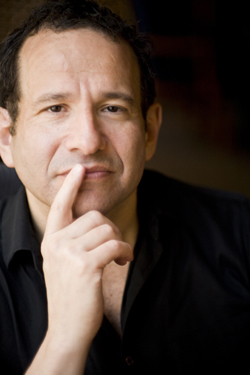 Steven Bernstein is an award-winning cinematographer who began his career in the UK in music videos and commercials, winning the Cannes Golden Lion. His career spans three decades, with work on groundbreaking projects including the multi-award winning feature Like Water For Chocolate and the Oscar-winning film Monster, starring Charlize Theron. As an author, his textbook on filmmaking, Film Production, was the largest selling book about film production for over a decade, has been translated into several languages, and is still used in universities around the world. He has lectured at many universities in the United States and the United Kingdom. Steven Bernstein begins production as a writer and director on his next film, Dominion, about the life and final day of the poet Dylan Thomas.
Steven Bernstein is an award-winning cinematographer who began his career in the UK in music videos and commercials, winning the Cannes Golden Lion. His career spans three decades, with work on groundbreaking projects including the multi-award winning feature Like Water For Chocolate and the Oscar-winning film Monster, starring Charlize Theron. As an author, his textbook on filmmaking, Film Production, was the largest selling book about film production for over a decade, has been translated into several languages, and is still used in universities around the world. He has lectured at many universities in the United States and the United Kingdom. Steven Bernstein begins production as a writer and director on his next film, Dominion, about the life and final day of the poet Dylan Thomas.

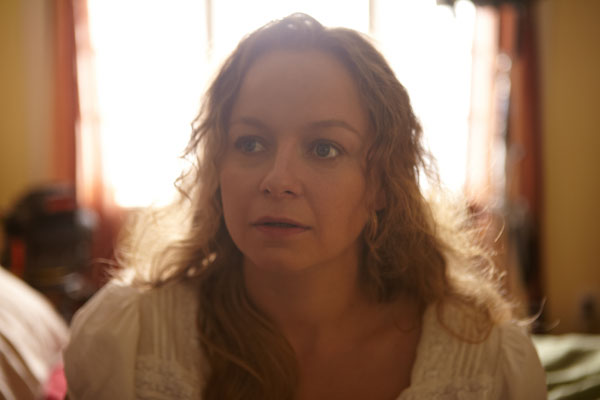
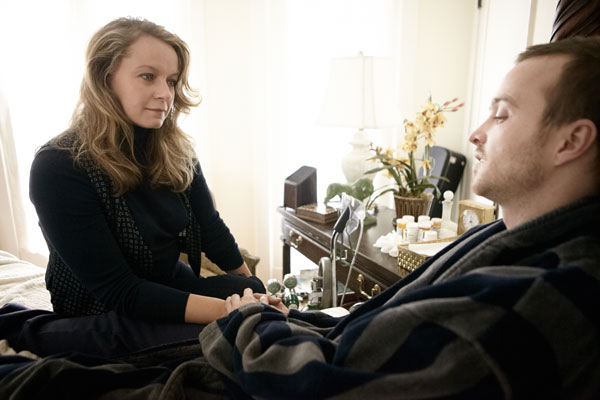
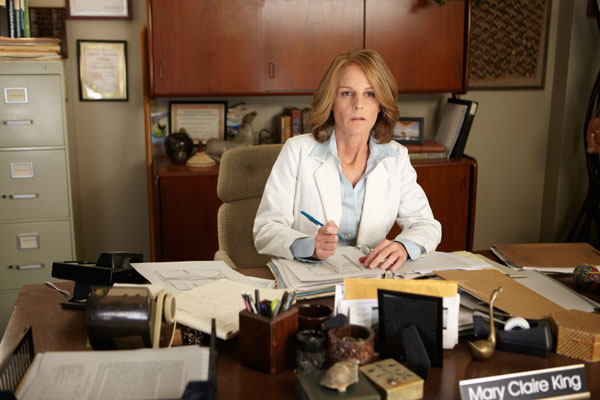
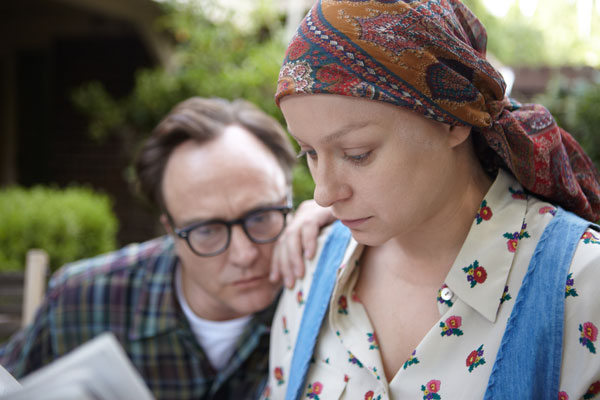
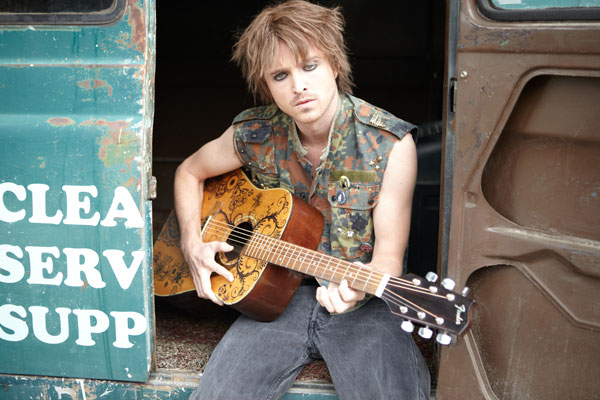





I had breast cancer twice and since the discovery of the brca gene mutation, both of my daughters have been tested and one is positive, one is negative, the daughter that is brca positive is having breast surgery in December , Thank god for Dr. king she has saved my child’s life!